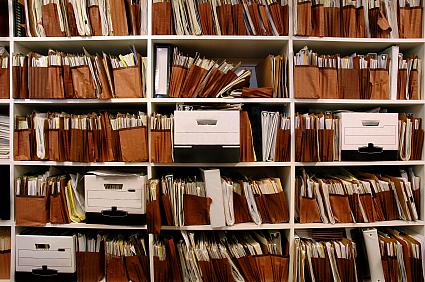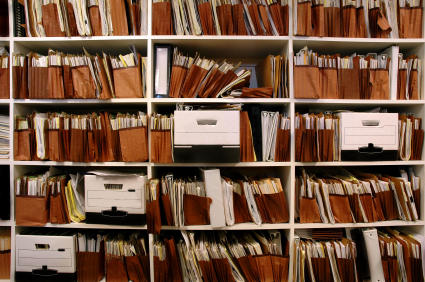Viewing Public Records Should Be As Easy As Casting Your Vote

 It's Nov. 6, 2012, and people are lined up outside post offices and elementary schools waiting to cast their votes. When they reach the voting machines, though, they are stopped by a Voting Information Officer. This friendly man asks them to please fill out a form requesting the opportunity to vote and citing the specific law that allows them to vote.
It's Nov. 6, 2012, and people are lined up outside post offices and elementary schools waiting to cast their votes. When they reach the voting machines, though, they are stopped by a Voting Information Officer. This friendly man asks them to please fill out a form requesting the opportunity to vote and citing the specific law that allows them to vote.
"That way we can make everything run more smoothly and keep track of who is making voting requests," the officer says.
Have you started reaching for your copy of the Constitution yet?
This scenario will not happen, of course. But something similar happens all the time when reporters or other members of the public request access to public information produced by public agencies using public money.
This is what happened to Antidote recently when I asked for records from the University of Minnesota. A member of the university's communications team, following school protocol, asked me to make an "official request." He was confused when I did not immediately file a request under the Freedom of Information Act or Minnesota's Data Practices Act. As he told me later, most reporters cite those laws and, eventually, get the records they want.
I did not make that "official" filing because I grew up in a journalistic tradition that says no one should be forced to cite public records laws in order to view a public record. My first investigative editor, Tracy Wood, forbid us from doing so. Her philosophy was that official requests unnecessarily gummed up the process and gave agencies a tool to delay the release of information or to outright block access.
I completely agree. We should not have to cite state or federal laws in order to vote, attend a public meeting, or pray at whatever house of worship suits us. We should not have to cite a state or federal law to drive on a highway, play in a park or attend a school that our taxpayer money funded. The whole idea behind the tradition of granting the public access to government records was that, in a democracy, people should be able to see exactly what government agencies are doing.
I understand the importance of following the discipline of making a specific request under state or federal law. (I'm teaching a class on reporting and writing at UCLA Extension this summer, and making a law-citing request is one of my assignments for students.)
In my experience, though, making a request that specifically cites a state or federal law tends to send that request into a channel that often involves the agency's legal department and several other layers of review and possibly redaction.
This can and often does delay the process. If I walk into most government agencies and ask to see hospital inspection records, property records, business records or other documents, I usually can see them within a matter of minutes. If I make a request citing an open records law, I likely will not receive records for weeks.
Most First Amendment attorneys would say that any request that is made to a public agency for specific records should start the timer for that request. If the agency demands later that a journalist or member of the public cite a specific public records law, that would be considered a delay in providing the records.
Once I explained to the University of Minnesota that I did not understand why I needed to cite a law in order to see a public record, the school sent me two of the records in question, but the school has not sent me any of the other records that were part of the request. Clearly, in this case, my stubbornness is not working.
But I have another question. Do you think journalists – or any member of the public – should cite public records laws every time they ask for records? Post a comment below or send me an email at askantidote@gmail.com.

